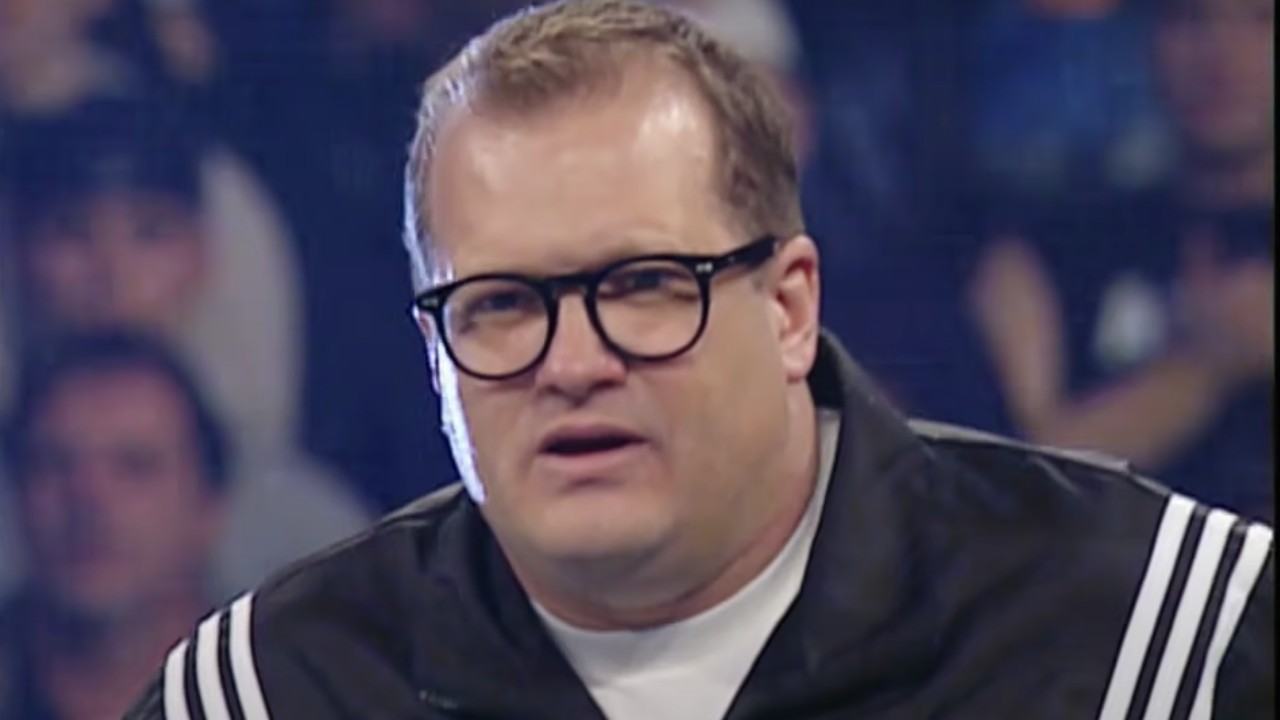Ms. Marvel And 10 Other Great Portrayals Of Muslim Characters In Recent Movies And Television
Now including a Marvel superhero!
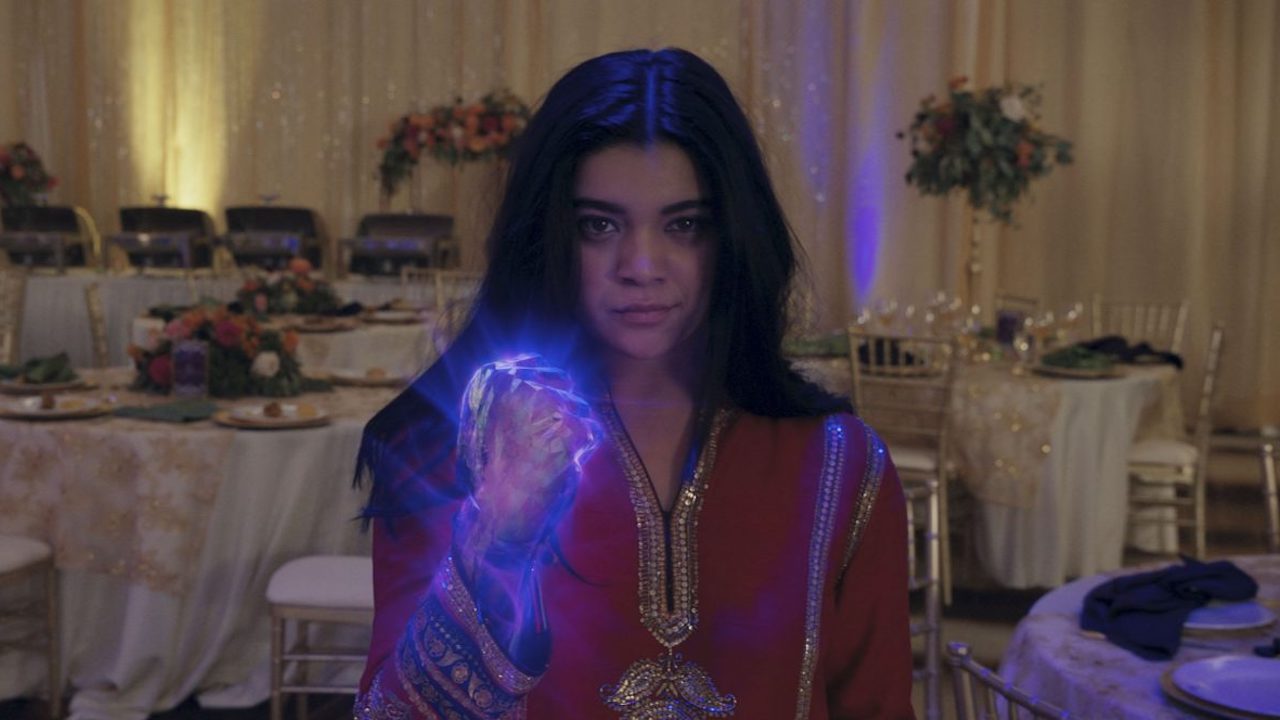
Despite nearly a quarter of the world’s population being Muslim, throughout Hollywood history there has not only been a major lack of representation of Muslim characters, but the few on screen are typically overwhelmingly stereotyped and made into villains of the story. There’s a lot of work left to be done when it comes to the portrayal of Muslim characters in movies and TV shows, but in recent years there have at least been more authentic and varied depictions on screen – most recently with Marvel Studios introducing its first Muslim superhero with Ms. Marvel.
Last summer, a report by USC (via Deadline) estimated that just 1.1 percent of characters in 100 popular U.S. films made from 2017 to 2019 were Muslim and out of 200 films worldwide, just over 90 percent did not feature even one Muslim speaking character. The study also showed that over half of Muslim characters were in films set in the past. In summation, Muslim characters have greatly been erased from popular media. Despite these stats, there have been a handful of great recent portrayals of Muslim characters who’ve managed to break some much needed ground:
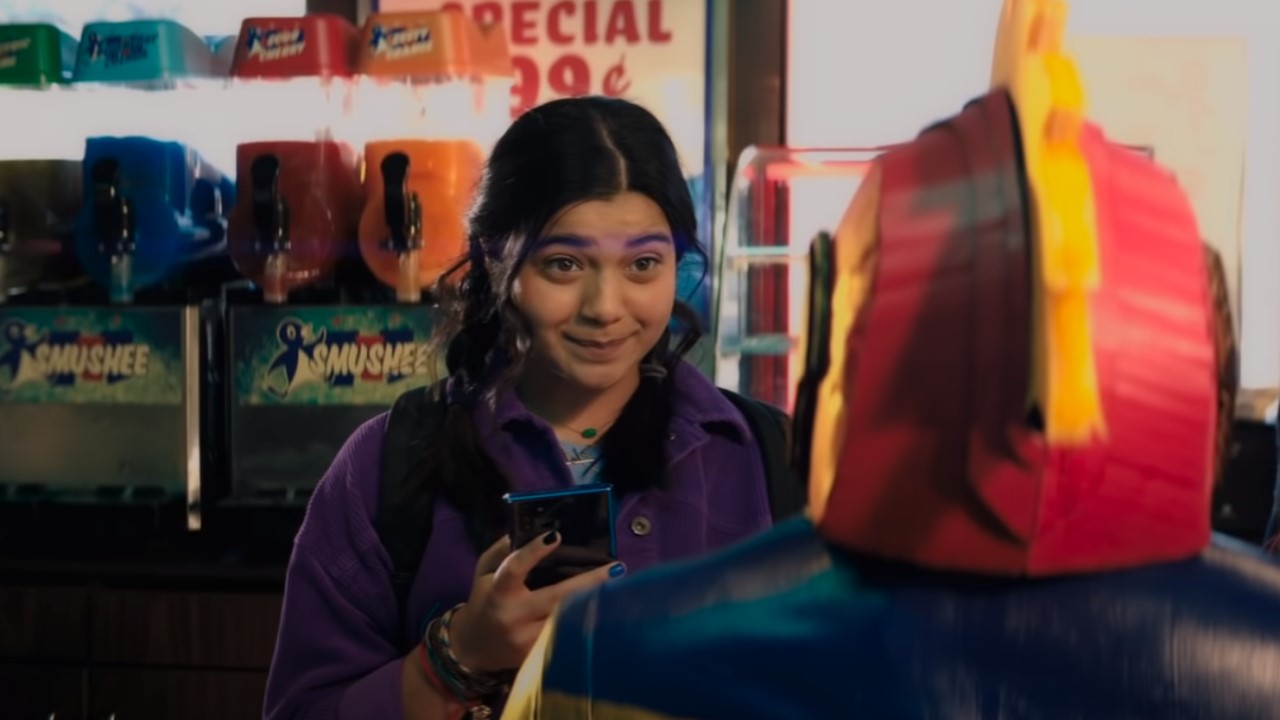
Kamala Khan (Iman Vellani) - Ms. Marvel
The most mainstream and exciting depiction of a Muslim character to date is Ms. Marvel, starring Iman Vellani as Kamala Khan. The Disney+ series follows a teen Avengers superfan and American Pakistani Muslim living in Jersey City who gains the ability to harness cosmic energy and create constructs from a magical bangle.
The Disney+ show is adapted from the comic character created by Sana Amanat and Stephen Wacker, and writer G. Willow Wilson. The series highlights a Muslim family living in the United States and trying to uphold their traditional values by going to the mosque and celebrating holidays like Eid in a refreshingly authentic way. We can’t wait to see this series soar and Ms. Marvel make her transition to the big screen for 2023’s The Marvels.
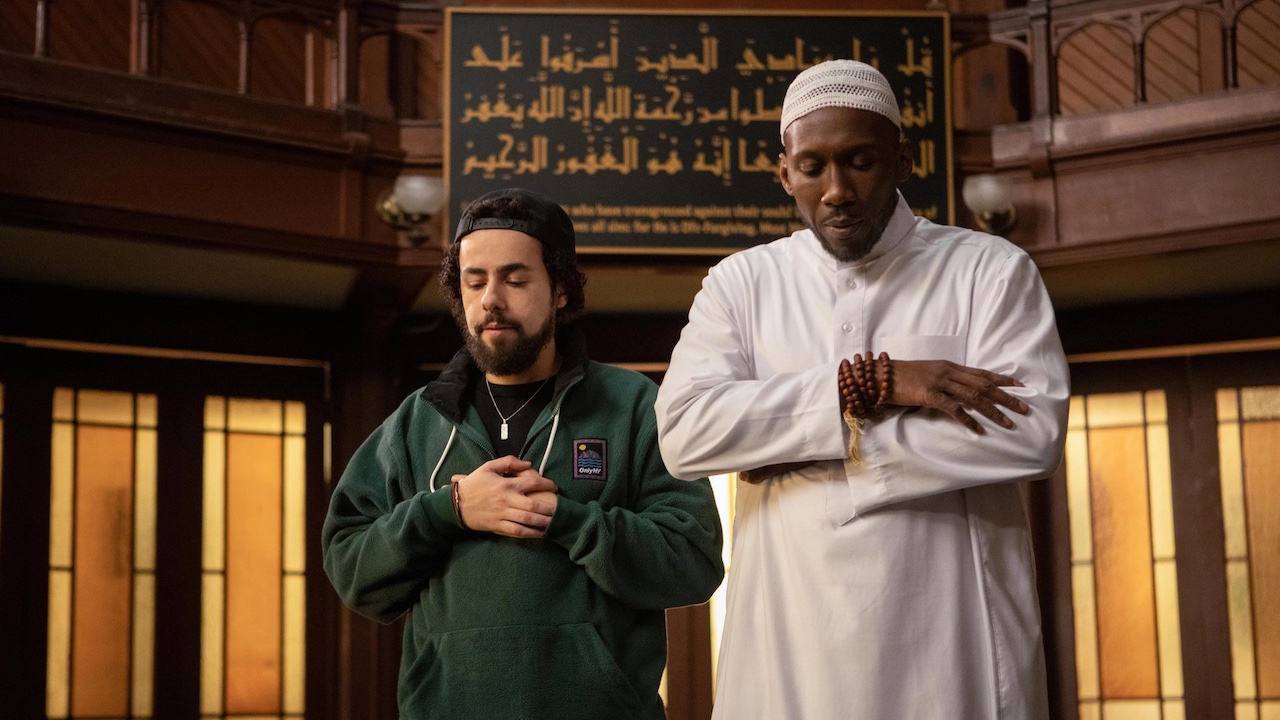
Ramy (Ramy Youssef) - Ramy
Hulu’s Golden Globe-winning series, Ramy also depicts a New Jersey Muslim, but from a much more grown up perspective. Created by American-Egyptian comedian Ramy Youssef, this dramedy takes a super honest approach to what it’s like growing up as a first-generation American Muslim these days. Ramy is caught between living in the western world and trying to uphold the values of his family, and runs into struggles with his faith and relationships.
It’s incredibly relatable to those of the same background and has been praised as such, not only for Youssef drawing from personal experience, but looking to his costars like May Calamawy for theirs. The series also has a great storyline involving Mahershala Ali (who is really an American Muslim as well) which showcases a Black Muslim and Imam in a post-9/11 divided community.
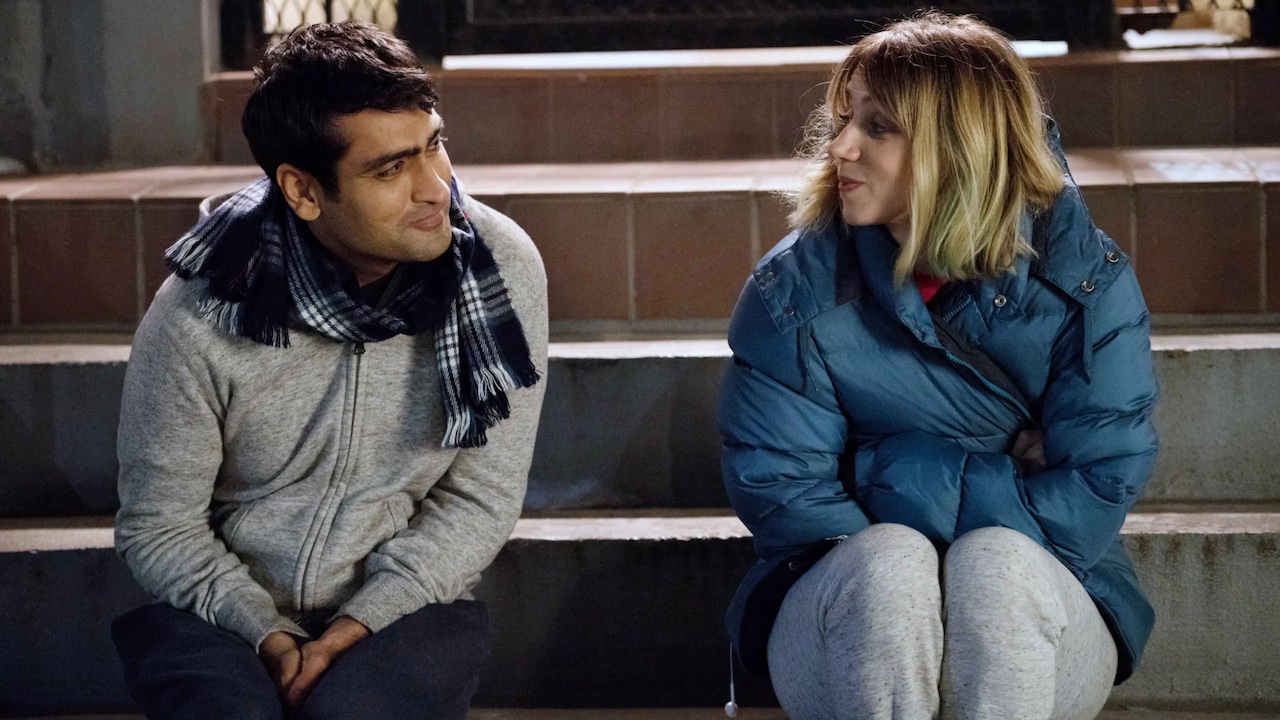
Kumail (Kumail Nanjiani) - The Big Sick
Another especially personal portrayal of a Muslim character came in the form of the 2017 romantic comedy, The Big Sick. The Amazon film, which was written by husband and wife Kumail Nanjiani and Emily V. Gordon, loosely tells their love story. Amidst Kumail being constantly set up by his parents with Pakistani women with hopes for an arranged marriage, he meets Emily, a white psychology student, not soon before she becomes hospitalized and is placed in an induced coma.
Your Daily Blend of Entertainment News
Kumail pretends to be her husband to visit her and ends up creating a bond with her parents, who have a skewed view of Muslim Americans. The movie was praised by other Muslims for portraying its lead character as a normal American in a romantic comedy, with some of the intricacies of his background also weaved in as well.
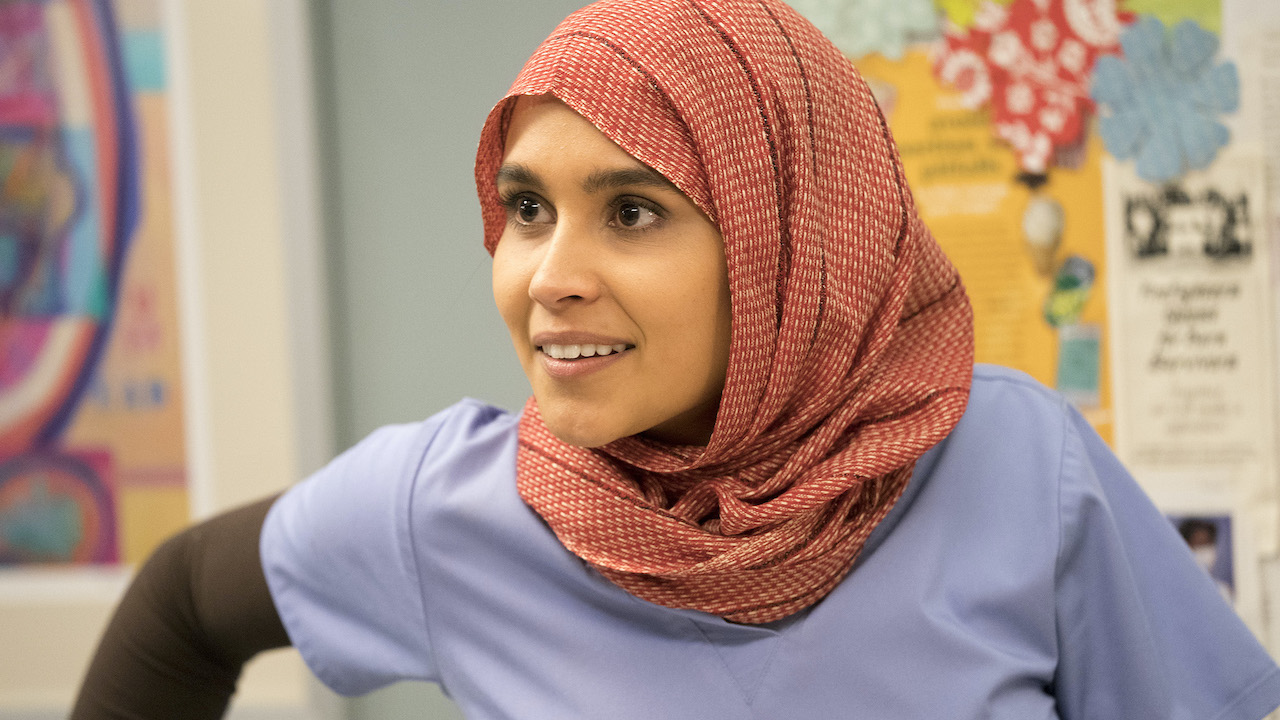
Dahlia Qadri (Sophia Ali) - Grey’s Anatomy
Grey’s Anatomy has long been one of the most popular TV shows of the modern age. So when the ABC series decided to include Dr. Dahlia Qadri as a surgical resident on the medical series, it became a major moment for Muslim representation. Indian-Pakistani American actress, Sophia Ali, portrayed the character from Season 14 to 16.
Dahlia is a rare recurring character in a network series to wear a hijab and in one especially viral 2018 episode (S14, E13), Dr. Qadri broke stereotypes about female Muslim characters when she takes off her hijab to save a patient and when asked why, she says "It's a symbol of my faith. And my faith is about service and compassion."
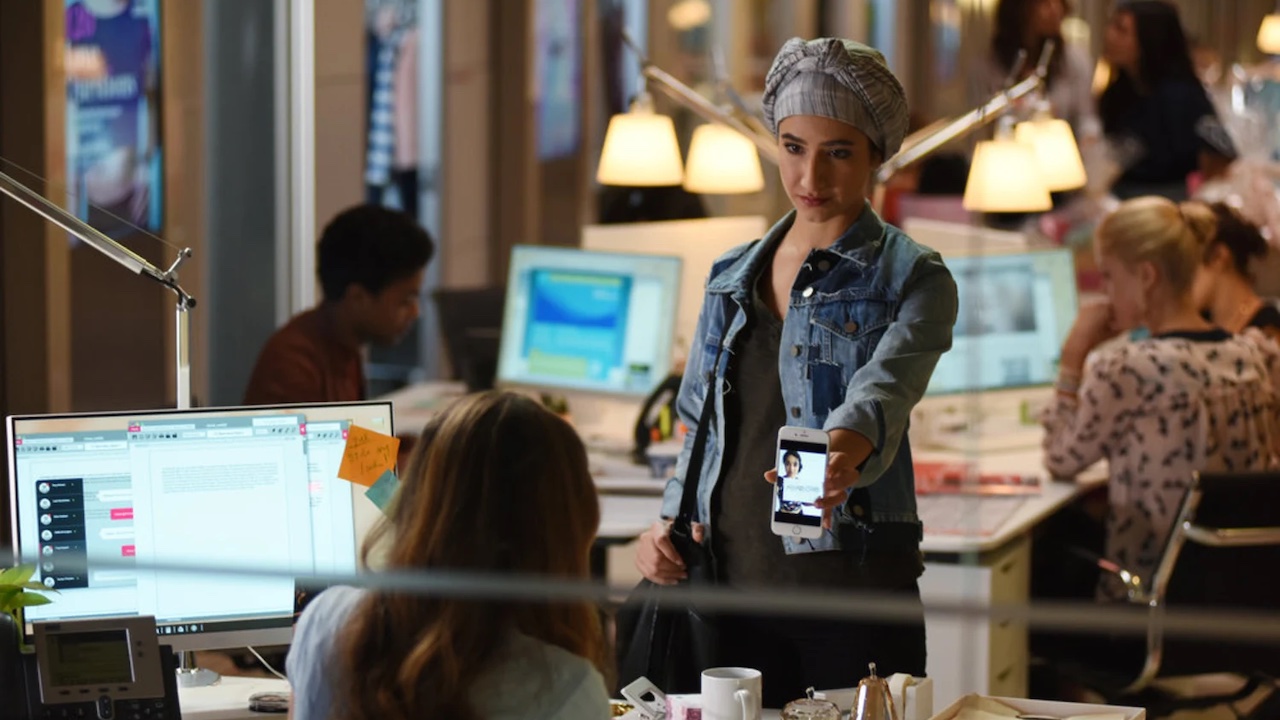
Adena El Amin (Nikohl Boosheri) - The Bold Type
Iranian-Canadian actress Nikohl Boosheri made network TV history, as well, on Freeform’s The Bold Type as Adena El Amin, a photographer and artist who had a powerful storyline throughout the show’s five season run. Adena has been praised by Muslim viewers for the show’s depiction of topics relating to her hijab, which she says empowers her within the series. Plus, Adena is a rare Muslim character from the LGBTQ+ community. In the series, a love story blooms between Adena and Aisha Dee’s Kat Edison, who even find a happy ending by the series’ conclusion.
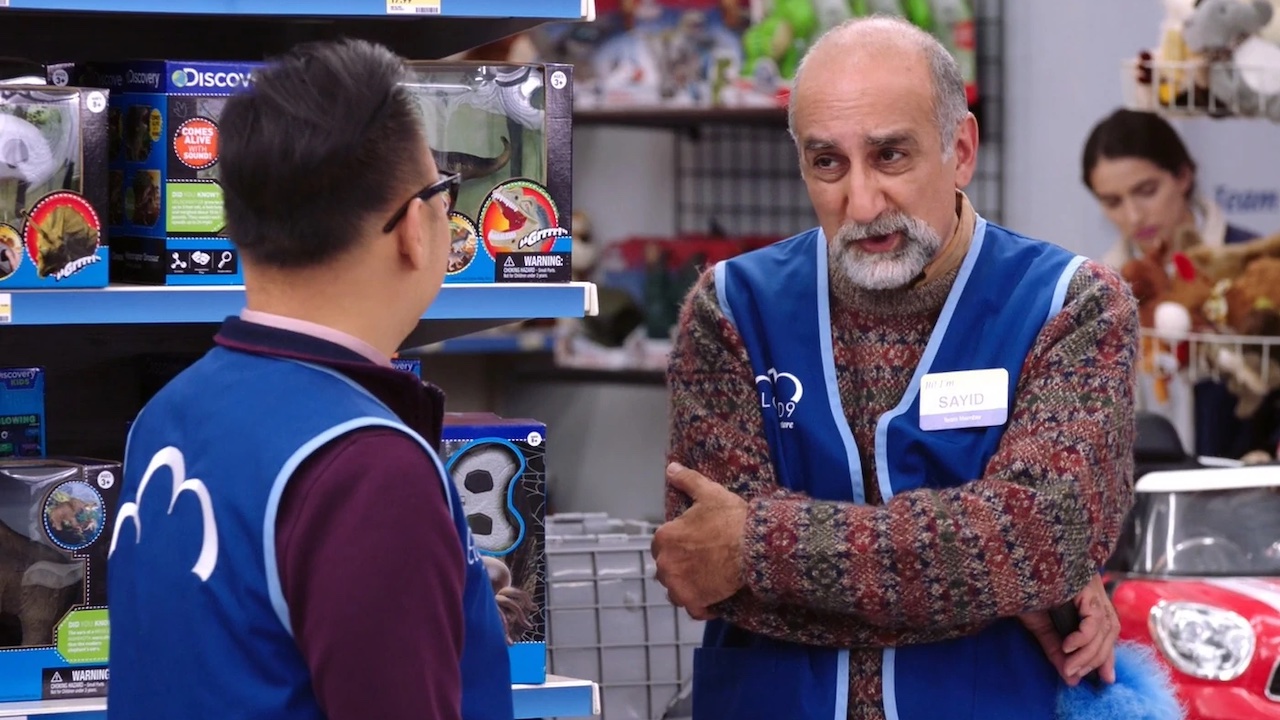
Sayid (Amir Korangy) - Superstore
There are not enough Muslim characters who are simply fun and funny and in a light-hearted space of a sitcom, but NBC’s Superstore turned that around with their recurring character, Sayid, played by Amir M. Korangy for Seasons 4 through 6. Sayid is another misfit worker at the Cloud 9 store who gets into their hijinks, but between that there’s a few situations that inject his identity. In one episode storyline, Sayid must share the same utility closet he uses for prayers with America Ferrera’s Amy when she needs it for breastfeeding. In another episode, it discusses his status as a Syrian refugee, all while keeping its sitcom tone.
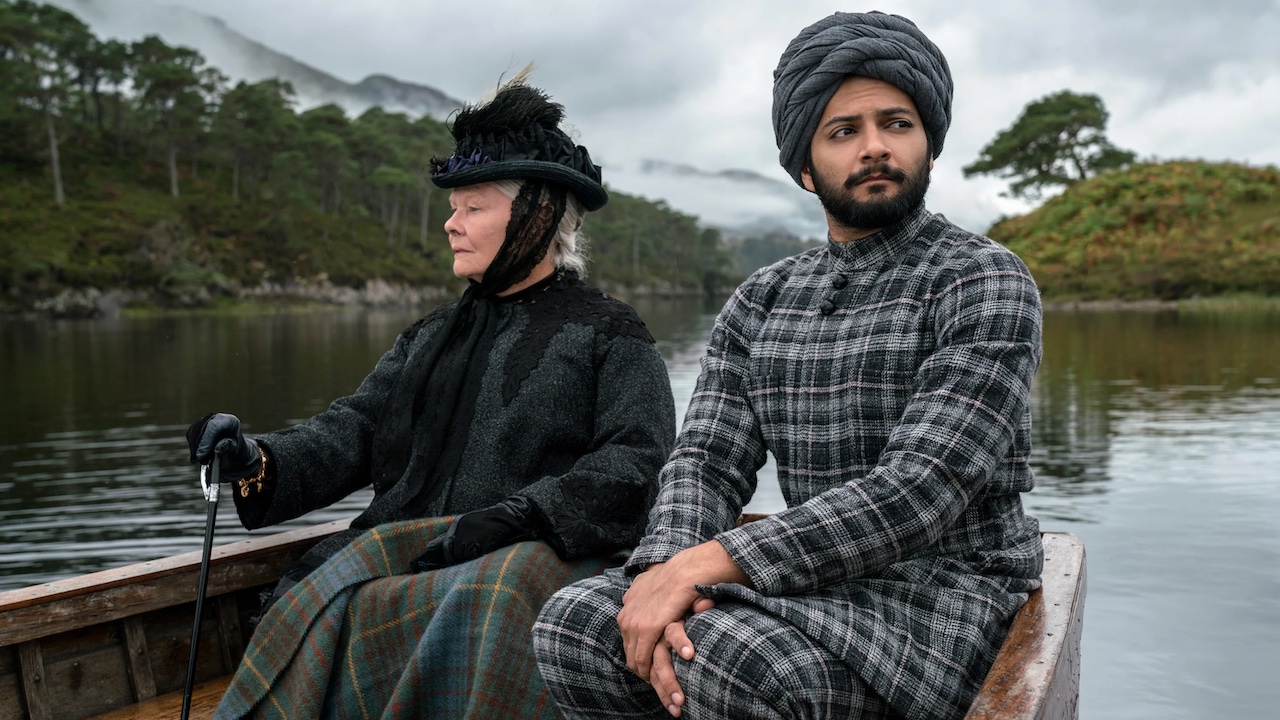
Abdul Karim (Ali Fazel) - Victoria & Abdul
In a rare moment in movies, Universal Pictures released Victoria & Abdul in 2017, which tells the true story of Queen Victoria’s unlikely friendship with her Indian servant, Abdul Karim. The movie starred Dame Judi Dench as the Queen in the late 1800s as she develops an interest in Ali Fazal’s Abdul Karim, a Muslim from British India. Through the movie, it explores Islamophobia and Colonialism in a unique way we don’t typically see in theatrical releases.
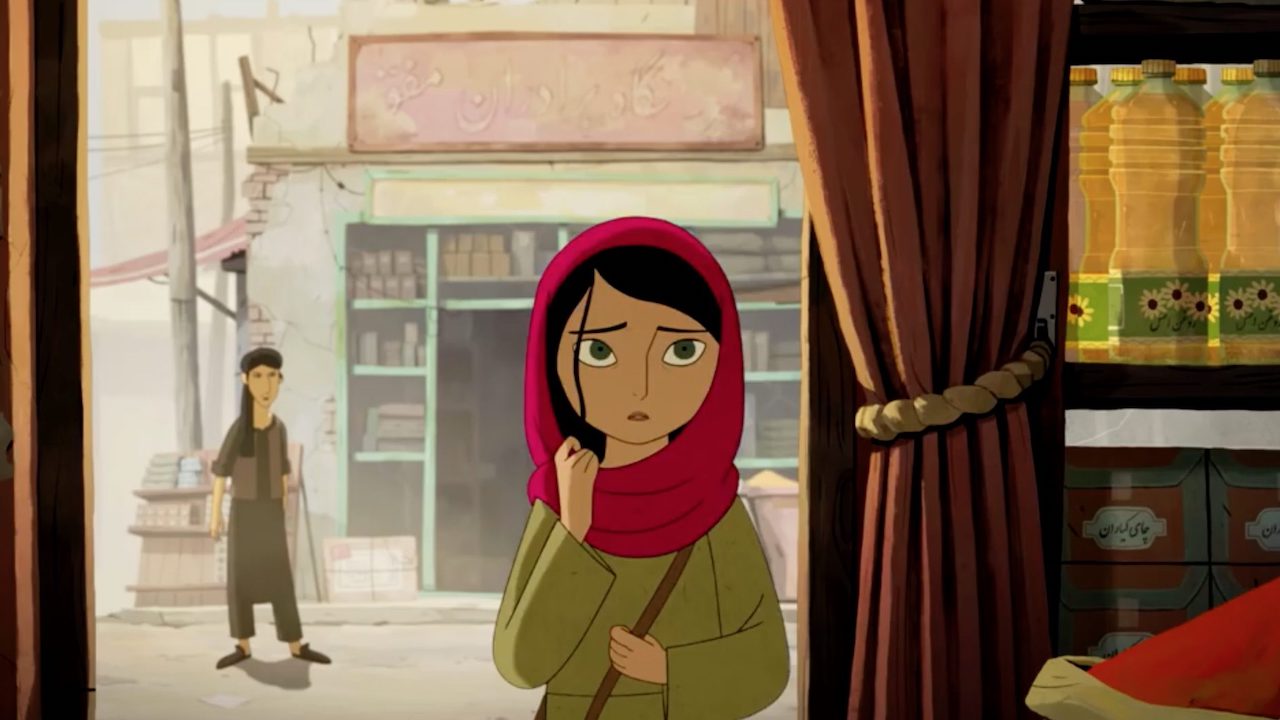
Parvana (Saara Chaudry) - The Breadwinner
Also in 2017, the Angelina Jolie-produced animated feature, The Breadwinner, was released. The movie is an adaptation of a book of the same name about an 11-year-old girl named Parvana and her family who struggle to survive in Afghanistan under Taliban rule. The movie was praised by Afghani audiences, particularly for its depiction of the Taliban rule and its strict interpretation of Islam that fiercely restricted women’s freedoms. It allows an Afghan girl to tell her own story and be a strong character. The movie was nominated for Best Animated Feature at the 2018 Oscars, but Pixar’s Coco took home the award.
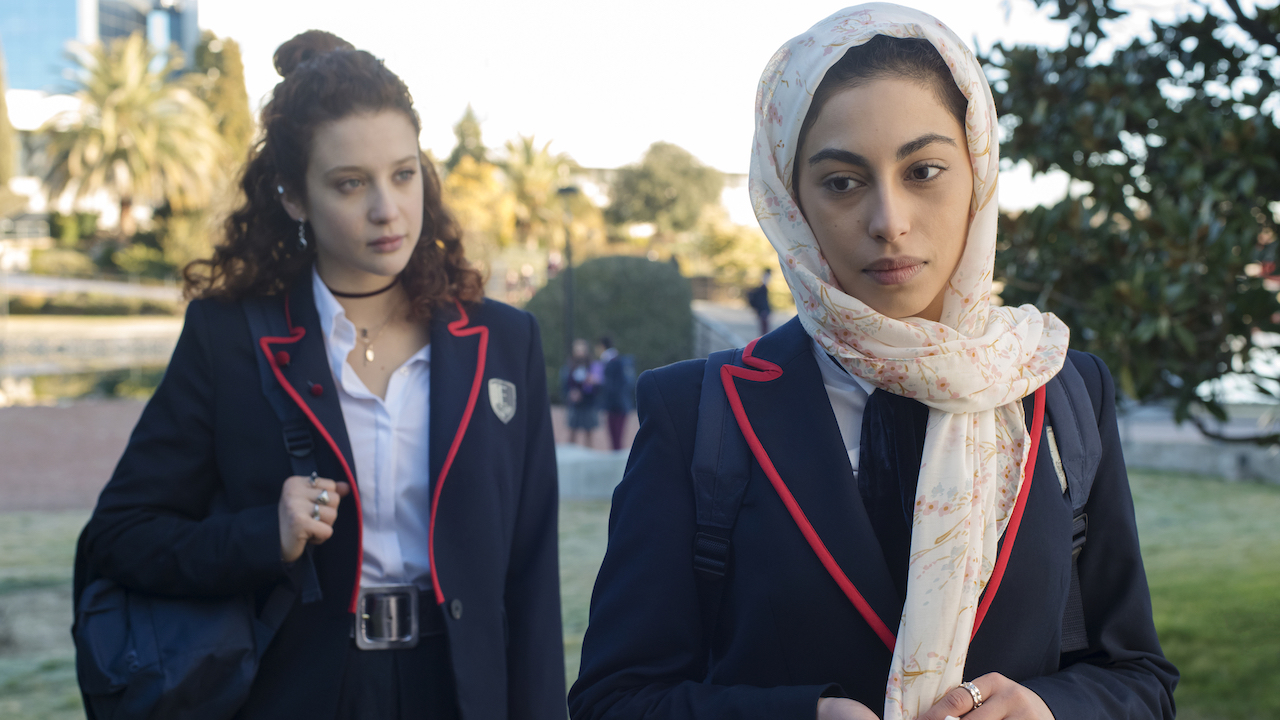
Nadia Shanaa (Mina El Hammani) - Elite
Over on streaming, Netflix's teen thriller, Elite, includes a Muslim character in Mina El Hammani’s Nadia Shanaa. Nadia, who was in Seasons 1 through 4 was a transfer student who was the daughter of Palestinian immigrants. Her character served as a way for Elite to discuss some common conflicts Muslim teens deal with as the balance between practicing her religion and fitting in at school clashes. For example, finding interest in a boy at school despite it being against her values and discussions related to her hijab, which at one point is banned at her school. Elite began an uncommon discussion in high school-set series.
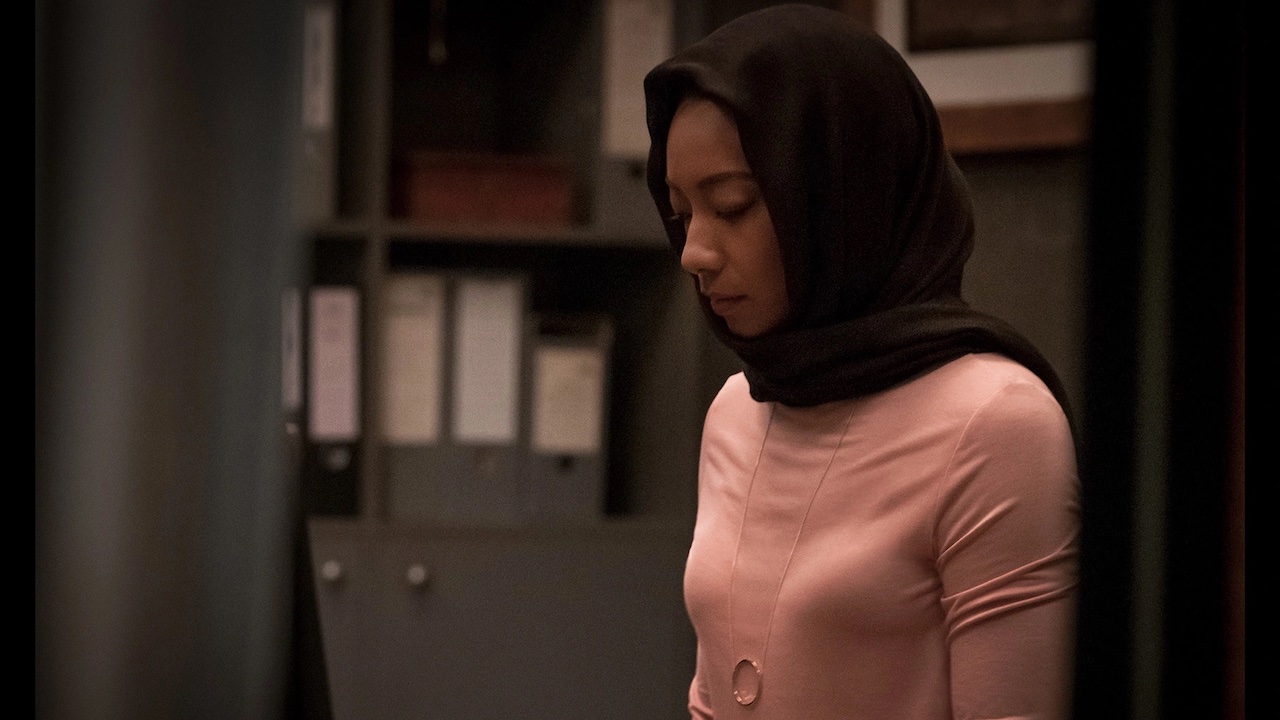
Naya Temple (Betty Gabriel) - Counterpart
The short-lived Starz series, Counterpart, starring J.K. Simmons, featured another female Muslim character in Betty Gabriel’s Naya Temple. The Get Out actress plays a former FBI agent in the series who's hired to assist in its exploration of parallel Earths. Naya is a practicing Muslim, and per IndieWire, in order to play the role authentically the actress reached out to the Muslim Public Affairs Council (MPAC) and actually learned the Islamic prayer for Counterpart. The character showed a practicing Muslim who doesn’t regularly wear a hijab (like many Muslim women throughout the world) who is also a Black American.
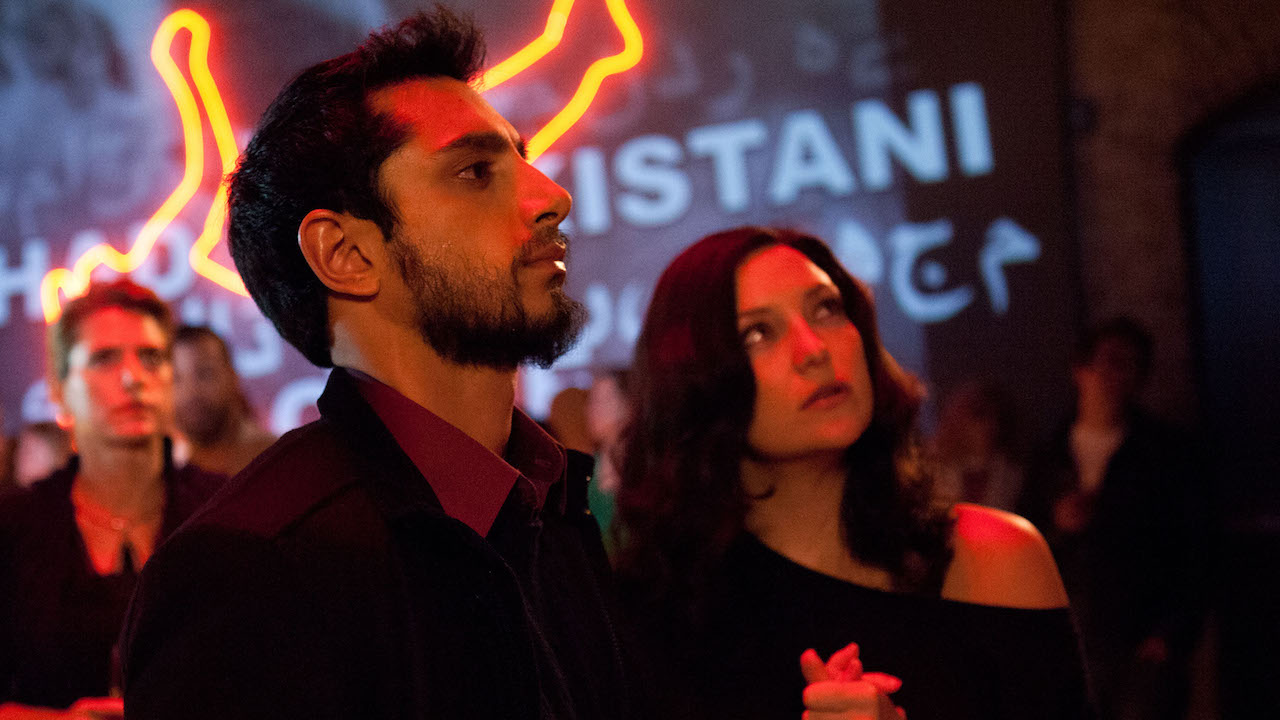
Changez Khan (Riz Ahmed) - The Reluctant Fundamentalist
We’ll wrap this list up with a 2012 film that signalled the beginning of some of the Muslim representation we’ve seen even more recently in the movies and TV shows above. 2012’s The Reluctant Fundamentalist was another rare Hollywood movie that featured a Muslim lead in Riz Ahmed’s Pakistani-American character, Changez Khan.
In the political thriller, Kate Hudson plays an American professor who is kidnapped and held for ransom. Liev Schreiber’s Bobby Lincoln is an American journalist who arranges a meeting with Khan under suspicion that he kidnapped her. Despite being an educated American, the movie shows how Khan is victim to the negative image of Muslims following 9/11 as he's blamed for a crime he did not commit.
For the time being, these characters are exceptions to a norm in movies and television that greatly erases Muslim characters. As these characters open the door for normalizing telling more stories about a major part of the population, perhaps in five to 10 years this list will be overflowing with examples.
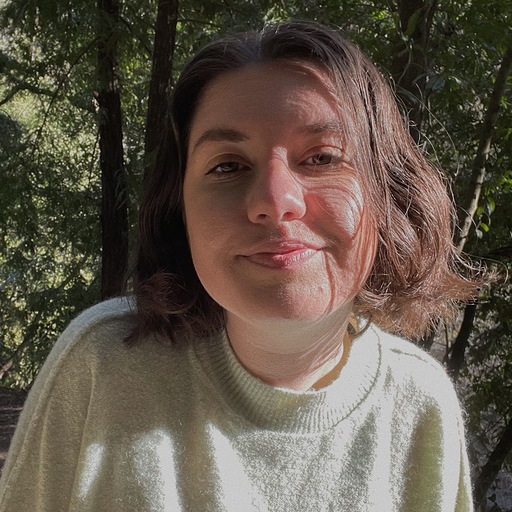
Sarah El-Mahmoud has been with CinemaBlend since 2018 after graduating from Cal State Fullerton with a degree in Journalism. In college, she was the Managing Editor of the award-winning college paper, The Daily Titan, where she specialized in writing/editing long-form features, profiles and arts & entertainment coverage, including her first run-in with movie reporting, with a phone interview with Guillermo del Toro for Best Picture winner, The Shape of Water. Now she's into covering YA television and movies, and plenty of horror. Word webslinger. All her writing should be read in Sarah Connor’s Terminator 2 voice over.
